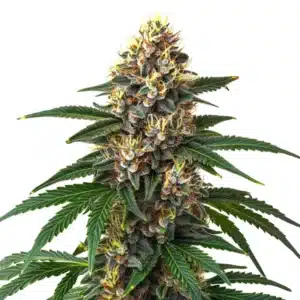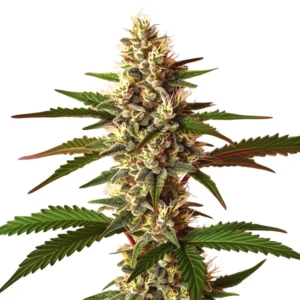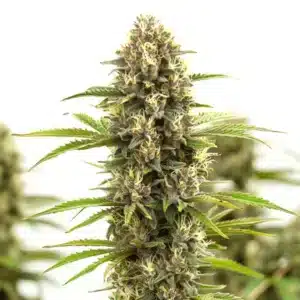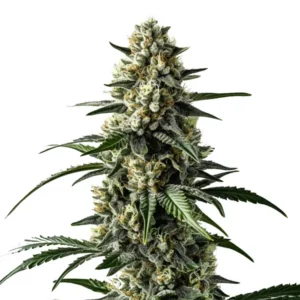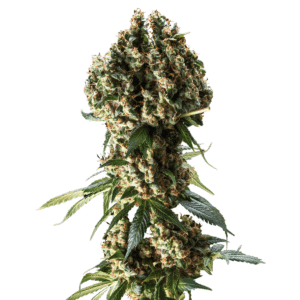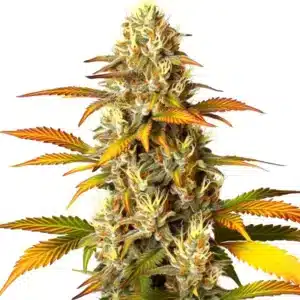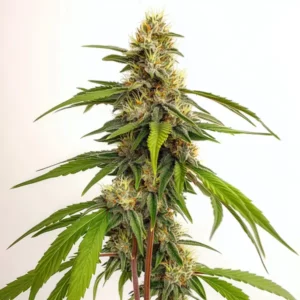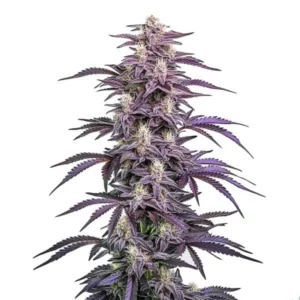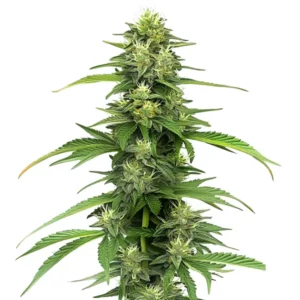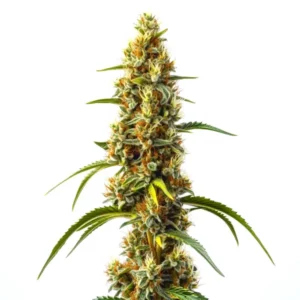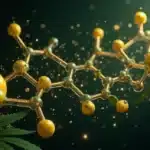
How Cannabis Oil Helps with Prostate Cancer
Prostate Cancer and Cannabis Oil
What Is Prostate Cancer and How Does It Develop?
Prostate cancer occurs when cells in the prostate gland grow uncontrollably. The prostate is a small gland in men that plays a crucial role in producing seminal fluid, which nourishes and transports sperm. When cancer develops in this gland, it can lead to serious health concerns, particularly if it spreads to other areas of the body.
Prostate cancer can be slow-growing or aggressive, with some forms remaining localized for years without causing significant health issues. However, aggressive cases can spread rapidly to bones and lymph nodes, requiring immediate medical intervention. Common symptoms include difficulty urinating, frequent urination at night, blood in urine, pelvic discomfort, and erectile dysfunction.
Recommended Strains
Candy Kush
|
|
THC | 14% - 19% (Medium) |
|
|
Type | Feminized |
|
|
Yield | Medium |
|
|
Phenotype | 60% Indica / 40% Sativa |
Candy Punch Regular
|
|
THC | 15% - 18% (Medium) |
|
|
Type | Regular |
|
|
Yield | High |
|
|
Phenotype | 30% Indica / 70% Sativa |
Endocannabinoid System in Prostate Cancer
The endocannabinoid system (ECS) is a complex biological network that helps regulate various physiological functions, including mood, pain, immune response, and cellular growth. This system consists of cannabinoid receptors (CB1 and CB2), endogenous cannabinoids, and enzymes that regulate cannabinoid activity in the body.
Studies suggest that the ECS may play a role in prostate cancer progression. Some cancerous cells express CB1 and CB2 receptors, which interact with cannabinoids found in cannabis oil. Researchers are exploring whether activating these receptors with plant-based cannabinoids like CBD and THC could slow tumor growth, reduce inflammation, and improve quality of life for prostate cancer patients.
How Cannabis Oil Interacts with Prostate Cancer Cells
Cannabis oil contains cannabinoids like cannabidiol (CBD) and tetrahydrocannabinol (THC), both of which interact with the ECS. Research indicates that these compounds may influence prostate cancer in several ways:
- Inhibiting Tumor Growth: Some laboratory studies suggest that cannabinoids can slow the proliferation of prostate cancer cells by affecting key cell signaling pathways.
- Inducing Apoptosis: Apoptosis is the natural process of programmed cell death. Cannabinoids have been observed to trigger apoptosis in certain cancer cells, potentially preventing tumor growth.
- Reducing Angiogenesis: Tumors require blood vessels to grow and spread. Cannabinoids may inhibit angiogenesis, reducing the tumor’s ability to sustain itself.
- Modulating Androgen Receptors: Since prostate cancer is often driven by androgens (male hormones), researchers are investigating whether cannabinoids can influence androgen receptor activity, thereby slowing disease progression.
Although early studies are promising, more research is needed to determine how cannabis oil can be integrated into conventional prostate cancer treatment plans.
Promos & Deals
Potential Benefits of Cannabis Oil for Prostate Cancer
Can Cannabis Oil Help Slow Prostate Tumor Growth?
Emerging research suggests that cannabinoids may have anti-tumor properties. Preclinical studies have demonstrated that CBD and THC can influence cancer cell signaling pathways, potentially reducing tumor progression. However, while laboratory results are encouraging, human clinical trials are necessary to confirm these effects.
One study on prostate cancer cells found that cannabinoids could induce apoptosis and slow tumor growth in laboratory conditions. While this does not yet translate to a definitive cure, these findings indicate that cannabis oil may play a supportive role in prostate cancer treatment.
Managing Pain and Inflammation with Cannabis Oil
Pain and inflammation are common symptoms associated with prostate cancer, especially in advanced stages. Cannabis oil is widely recognized for its analgesic (pain-relieving) and anti-inflammatory properties, making it an appealing option for patients seeking symptom relief.
By interacting with CB1 receptors in the central nervous system, THC can help reduce pain perception, while CBD may reduce inflammation in affected tissues. Many patients report improved comfort levels when using cannabis oil alongside conventional treatments.
CBD and THC in Hormone Regulation and Cancer Progression
Hormones, particularly androgens like testosterone, play a significant role in the progression of prostate cancer. Researchers are exploring whether cannabinoids can influence hormone activity to slow disease progression. While some studies suggest that CBD and THC may alter androgen receptor expression, the long-term effects remain unclear.
Patients undergoing hormone therapy to lower testosterone levels may find that cannabis oil helps manage treatment-related side effects, such as fatigue, mood changes, and muscle weakness.

Can Cannabis Oil Reduce Side Effects of Chemotherapy and Radiation?
Traditional cancer treatments, including chemotherapy and radiation, can cause debilitating side effects such as nausea, fatigue, and appetite loss. Cannabis oil has been shown to help alleviate these symptoms in many patients.
CBD, in particular, has been widely recognized for its anti-nausea effects. The FDA has approved cannabinoid-based medications like dronabinol for chemotherapy-induced nausea, suggesting that cannabis oil could provide similar benefits for prostate cancer patients undergoing treatment.
Risks and Considerations of Using Cannabis Oil for Prostate Cancer
Possible Side Effects and How to Minimize Them
While cannabis oil offers potential benefits, it may also cause side effects. Common adverse reactions include:
- Drowsiness
- Dizziness
- Dry mouth
- Changes in appetite
- Increased heart rate (with high THC doses)
To minimize side effects, patients should start with a low dose and gradually increase it under medical supervision. Choosing CBD-dominant oils or balanced CBD-THC ratios may also reduce psychoactive effects.
Interactions Between Cannabis Oil and Conventional Cancer Treatments
Cannabis oil may interact with medications used in prostate cancer treatment. Both THC and CBD can affect liver enzymes responsible for metabolizing drugs, potentially altering their effectiveness.
For patients undergoing chemotherapy, radiation, or hormone therapy, consulting with an oncologist before incorporating cannabis oil into their treatment plan is essential to avoid unwanted interactions.
Finding the Right Dosage for Prostate Cancer Management
There is no standardized dosage for cannabis oil in prostate cancer treatment, as individual responses vary. Factors such as weight, metabolism, and symptom severity all influence dosing requirements.
Many patients begin with a low CBD dose and gradually adjust based on symptom relief and tolerance. Some may find that a combination of CBD and THC provides better results, but this should be determined with medical guidance.
Best Cannabis Oil Products for Prostate Cancer Treatment
Full-Spectrum vs. Broad-Spectrum vs. CBD-Isolate Oils
- Full-Spectrum: Contains all cannabinoids, including THC, providing the full entourage effect.
- Broad-Spectrum: Contains multiple cannabinoids but no THC, ideal for patients avoiding psychoactive effects.
- CBD-Isolate: Pure CBD without other cannabinoids, suitable for those sensitive to THC.
How to Choose a High-Quality Cannabis Oil for Prostate Cancer
When selecting cannabis oil, consider:
- Source: Opt for organically grown cannabis to avoid pesticide contamination.
- Third-Party Testing: Ensure products are tested for purity and potency.
- CO2 Extraction: This method preserves cannabinoid integrity without harmful solvents.
- Label Transparency: Choose brands that provide clear cannabinoid content and ingredient lists.
Recommended Consumption Methods for Prostate Cancer Patients
- Sublingual Tinctures: Fast absorption under the tongue.
- Capsules: Provide consistent dosing.
- Edibles: Offer longer-lasting effects but slower onset.
- Topicals: May help with localized pain relief.

FAQs About Cannabis Oil Treatment for Prostate Cancer
Can cannabis oil replace traditional treatments for prostate cancer?
Cannabis oil should be viewed as a complementary therapy rather than a replacement for traditional treatments. While it may support symptom management, patients should continue with prescribed treatments under medical supervision.
How long does it take for cannabis oil to show effects on prostate cancer?
Effects vary depending on dosage and individual response. Some patients experience symptom relief within hours, while potential anti-cancer benefits require weeks or months of consistent use.
Is cannabis oil safe for long-term use in prostate cancer patients?
CBD appears to be well-tolerated for long-term use, while prolonged THC exposure requires careful monitoring. Regular medical consultations help ensure safe and effective treatment planning.


